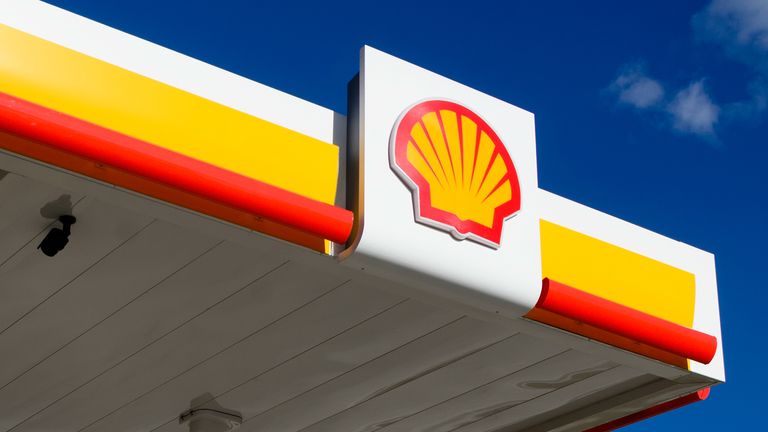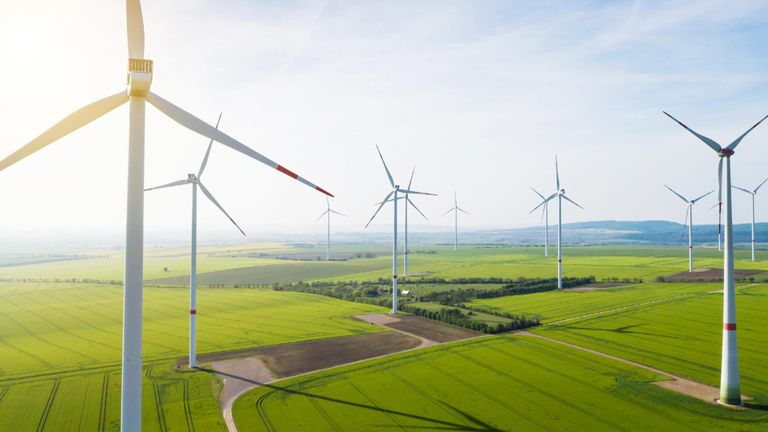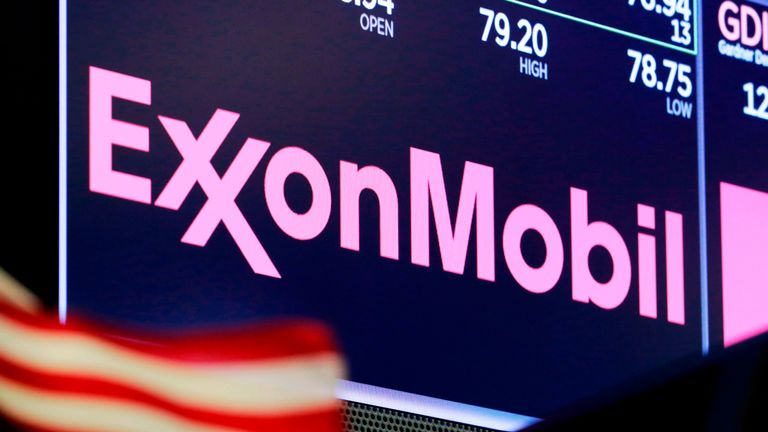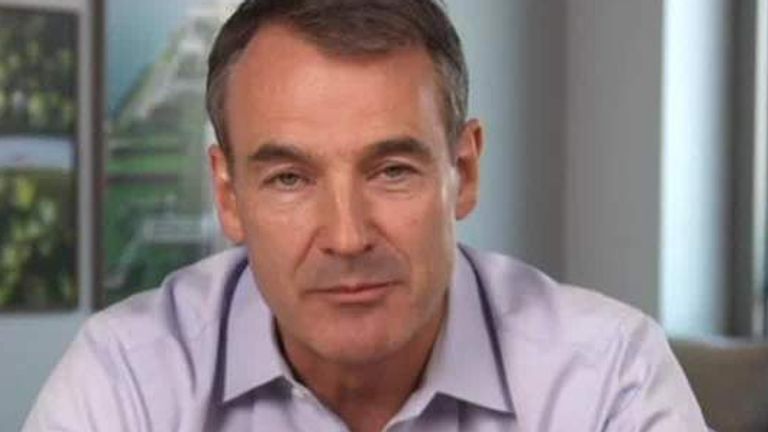Some of the world’s biggest oil companies are currently paying negative tax on their fossil fuel extraction and production operations in the North Sea.
Official data published by the UK government-backed Extractive Industries Transparency Initiative shows that in the tax year 2019-20, ExxonMobil received £117m in total from HMRC, Shell got £110m, and BP received £39m.
But these organisations are not alone.
A third of all significant energy companies operating in the North Sea paid negative tax last year.
This is possible in large part because of a UK tax policy that was brought in just a few months after the Paris climate accord was agreed in 2015.
The policy allows oil and gas companies to claim back public money in order to help with decommissioning rigs and infrastructure as the UK progresses towards its net zero carbon emissions targets.
Since the Paris agreement, Exxon has received net tax repayments of £360m on its North Sea operations, BP £490m, and Shell £400m, rounded to the nearest 10 million.
Some of these sums relate to corporate tax arrangements, but significant portions relate to money for decommissioning.
The UK government's Oil and Gas Authority has estimated that the total bill for decommissioning will be £51bn.
But because of the government's tax policy, the British taxpayer will be responsible for nearly 40% of that over the coming decades.
HMRC has estimated that the cost to the exchequer will be £18.3bn between now and 2065.
This comes as total government income from taxes on oil revenue is decreasing, largely due to falling demand and the cost of decommissioning payments.
Energy Research company Rystad Energy recently named the UK as the country that offers oil and gas companies the "best profit conditions" in the world "to develop big offshore fields."
Subscribe to ClimateCast on Spotify, Apple Podcasts, or Spreaker.
This has been illustrated by researchers like Greg Muttitt, who is a senior policy adviser at the International Institute for Sustainable Development.
He has calculated that in 2019 the UK government took $1.72 (£1.24) in taxes per barrel of oil, while the Norwegian government took $21.35 (£15.44).
Campaign groups say the current tax policy effectively amounts to the British public subsidising fossil fuel extraction, even as they are being urged to make greener choices in their own lives.
Environmental lawyer and campaign group Uplift founder Tessa Khan told Sky News: "These companies are allowed to extract oil and gas for private gain, not the public's benefit and certainly not the Treasury's.
"They're not helping to pay for our hospitals and schools, they're taking public money and handing it to their executives and shareholders.
"The harm to the climate from their actions will be borne by us all, with the poorest hit the hardest.
"There can be no excuses for propping them up with subsidies in a climate emergency. That era is over."
A Treasury spokesperson told Sky News: "We're leading the world in building back better and greener from the pandemic.
"We were the first major economy to commit to net zero by 2050 and one of the first to phase out petrol and diesel car sales by 2030.
"The UK oil and gas industry has paid around £375bn in production taxes to date.
"Relief for decommissioning costs is a fundamental part of the UK's tax system, contributing to the safe removal of oil and gas infrastructure from our natural environment whilst ensuring companies are encouraged to invest in the UK."
A spokesperson from ExxonMobil said: "The figures in the UK EITI report relate only to extractive operations (oil & gas production), several of which are nearing the end of their economic life.
"ExxonMobil also has downstream and chemical operations in the UK, and overall made a contribution to the UK of £5.2bn in direct and indirect taxes and duties in 2020.
"Over the lifetime of the North Sea, we have been a major, net contributor to the tax revenues generated by the basin and the recent refunds simply represent a repayment of some prior paid taxes as some of our older fields enter the decommissioning phase of their life."
A spokesperson from Shell told Sky News: "We are open about our tax payments so that people can understand what we pay and why.
"We voluntarily disclose more information than we are required to and lead best practice in this area.
"The question you raise is whether it is right that companies get tax relief for decommissioning assets.
"Decommissioning is part of the lifecycle of oil fields.
"This phase of work is heavily regulated and subject to tax legislation that enables tax relief.
"The concept of granting tax relief for genuine business expenses is fundamental to regimes that tax profits and is applicable and available to all businesses in all industries with few exceptions.
"Decommissioning costs in the oil and gas industry are treated consistently as a business expense."
A spokesperson for BP told Sky News: "The EITI's data cover only the extractive part of our business in the UK, our North Sea business.
"All BP's North Sea assets are owned by companies subject to UK tax in accordance with UK law.
"BP has contributed over £40bn in taxes to the UK government with respect to its North Sea business."
Sky News has launched the first daily prime time news show dedicated to climate change.
The Daily Climate Show is broadcast at 6.30pm and 9.30pm Monday to Friday on Sky News, the Sky News website and app, on YouTube and Twitter.
Hosted by Anna Jones, it follows Sky News correspondents as they investigate how global warming is changing our landscape and how we all live our lives.
The show also highlights solutions to the crisis and how small changes can make a big difference.
https://news.google.com/__i/rss/rd/articles/CBMid2h0dHBzOi8vbmV3cy5za3kuY29tL3N0b3J5L3JldmVhbGVkLXNvbWUtb2YtdGhlLXdvcmxkcy1iaWdnZXN0LW9pbC1jb21wYW5pZXMtYXJlLXBheWluZy1uZWdhdGl2ZS10YXgtaW4tdGhlLXVrLTEyMzgwNDQy0gF7aHR0cHM6Ly9uZXdzLnNreS5jb20vc3RvcnkvYW1wL3JldmVhbGVkLXNvbWUtb2YtdGhlLXdvcmxkcy1iaWdnZXN0LW9pbC1jb21wYW5pZXMtYXJlLXBheWluZy1uZWdhdGl2ZS10YXgtaW4tdGhlLXVrLTEyMzgwNDQy?oc=5
2021-08-13 14:01:10Z
CBMid2h0dHBzOi8vbmV3cy5za3kuY29tL3N0b3J5L3JldmVhbGVkLXNvbWUtb2YtdGhlLXdvcmxkcy1iaWdnZXN0LW9pbC1jb21wYW5pZXMtYXJlLXBheWluZy1uZWdhdGl2ZS10YXgtaW4tdGhlLXVrLTEyMzgwNDQy0gF7aHR0cHM6Ly9uZXdzLnNreS5jb20vc3RvcnkvYW1wL3JldmVhbGVkLXNvbWUtb2YtdGhlLXdvcmxkcy1iaWdnZXN0LW9pbC1jb21wYW5pZXMtYXJlLXBheWluZy1uZWdhdGl2ZS10YXgtaW4tdGhlLXVrLTEyMzgwNDQy




Tidak ada komentar:
Posting Komentar